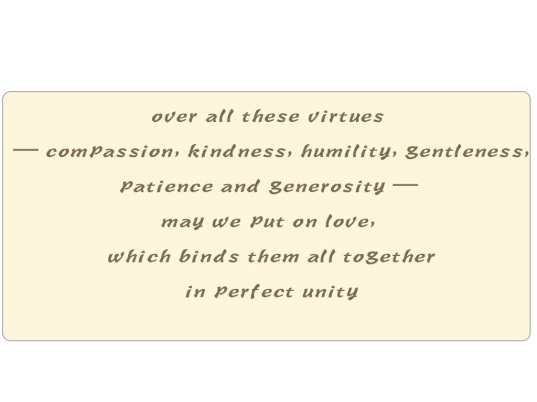Eli clicked off the TV and bedside lamp and turned over to try to sleep. He got up again immediately and stumbled across the motel room’s shabby carpet to adjust the blackout curtain and block the slit of light falling across his pillow.
He’d quit taking his anti-depressant, hoping that the familiar black gloom would reappear and take away all other feeling. If he was going to descend into a pit, he reasoned, his body might as well reflect his life. “Come, blackness, come,” he chanted silently. “I might as well die physically. My career, my life are over anyway. I have had enough, Lord. Take my life, I am no better than my predecessors.”
The depression was not cooperating. Instead, as he dozed he kept reliving the last few weeks.
He was eloquent in court, he knew that. He had right on his side, but, more important, he had the information he needed to win the case, hands down. The defendant had run out of appeals and legal maneuvers. The judges accepted Elijah’s arguments, and the Baal Corp. lost its last fight to keep from paying a $5 trillion judgment in favor of the thousands of people whose land and health the corporation had ruined.
The company’s stock had lost half its value after the previous judgment and had not gained it back before the final appeal. Eli’s opening argument caused a further drop, and the verdict was just the final push resulting in the multibillion dollar corporation’s downfall.
The media hailed his victory and interviewed several of the thousands of plaintiffs in the class action suit who stood to benefit.
But Eli’s moment of triumph against his former company was brief. The TV cameras also captured Arnold Habb, the chief executive officer, and Jessie Izbell, the chief operating officer, coming out of the courtroom. Izbell paused and stuck her immaculately made-up face into the camera with a message, she said, for Eli: “The system will get you for this and I’ll get even with you!” Cosmetics couldn’t soften the ugliness of her expression. “By this time tomorrow you’ll be ruined.”
He knew immediately what she threatened. He might have won the court case, but he used proprietary corporate secrets to reveal the company’s guilt: how Habb and Isbell had, for decades, ignored and suppressed reports of the effects of dumping toxic waste from company operations.
He knew the leaders of Baal Corp. would come after him, seeking his disbarment, suing him for every penny he had, ruining his credit, instigating foreclosure on his house, as well as getting their bought-and-paid-for U.S. attorney to file criminal charges of industrial espionage. Even as the company and its chief officers were forced into bankruptcy, he knew they were already using their still-considerable power to try to destroy him.
He had run out of options to oppose them, and he was tired of the fight. So were his friends, who had urged him to settle — “Take the money they’re offering and leave them alone,” his best friend, Obadiah, had advised. “If you get a verdict that destroys the company, they’ll destroy you and everything we’ve been fighting for.”
But he couldn’t let it go. He could not let this company live to fight another day. What’s right is right. He had given his all in his closing argument, citing not only the scientific evidence and the legal precedents, but scripture as well. The company’s offenses were not just against the people in the suit, but against the land itself. It was an offense against God. Well, that last indictment he did not utter out loud. This was a secular court, after all. But Eli believed in his heart that this was a moral crusade against godless adversaries, and he didn’t have to say it in so many words to get his point across.
Now they’re coming after him personally. A friend in high places in law enforcement warned that they might hire a hit man. He had persuaded his girlfriend to join the witness protection program before the last court fight. Now he should do the same, but he hesitated.
Even when you win, you don’t win, he thought. He packed a bag, emptied his bank account and fled. The Broom Tree, a seedy motel on the outskirts of Los Angeles, seemed like as good a place as any to hide and wait for death. Or further instructions, he snorted cynically.
He thought back to the vision — or was it just a dream? — that had started all this, a sort of “your mission, should you choose to accept it” moment when he realized he was in a position to stop the company, not only from future pollution, but from avoiding responsibility for past misdeeds. They were acting like they were God, he thought then. Like they didn’t have to follow any rules, whether it was the EPA, federal law or moral law — the Ten Commandments, for God’s sake. “Thou shalt not kill,” was pretty clear.
“No good deed goes unpunished,” Obadiah had warned. “If you succeed, they will kill you, and me, too, if they can.” Obadiah had dropped out of sight after that. Eli hoped he was in witness protection too.
He must have gone to sleep at last, because the knock on his door woke him. “Get up and eat,” a quiet female voice said.
This motel didn’t have room service, and he hadn’t ordered any food delivery. Who could be at his door telling him to eat? Curiosity overcame caution and he opened the door. A young woman in jeans and a white T shirt stood there with a bottle of water and some breadsticks of the kind that come with carryout pizza (but no pizza), wrapped in white paper.
“Here, eat this,” she said, as she thrust the food and water into his hands and left.
“Wha’?” He looked around the door, but the concrete balcony was empty. The dimly lit parking lot was empty too. Awareness broke through his confused haze. It was night time. His stomach was rumbling. The breadsticks were still warm, and he started munching them as he closed the door and walked back to the bed. He tipped back his head and drank deeply of the water, then slumped into the lumpy mattress.
His sleep was deeper, less fitful. But it was the kind that, when you awoke, you felt drugged and dopey. He had no idea how much time had passed before the knock woke him again.
It was the same young woman, her arms full of breadsticks and bottled water. He turned his back on the open door, walked over and sat on the edge of the bed. He was vaguely aware that he looked a mess — rumpled shorts and T shirt, flip flops and a scruffy beard. Well, it was a good disguise; he looked nothing like the assured attorney in power suit who had just days before won a case before the U.S. Supreme Court.
She followed him into the room, dumped the food on the bed and touched his shoulder gently. “Get up and eat some more. You’ve got a long journey ahead of you.” And then she left as quietly as she had before.
Eli’s state of stupor continued. He ate some bread and drank some water, and then began getting dressed. It was easy to pack — he’d never unpacked, not even his razor. Oh yeah, his razor. He dropped his jeans in mid-pull and went into the bathroom. He showered, shaved and brushed his teeth and then put on clean clothes — khakis and a polo shirt with sneakers. He was beginning to revive somewhat.
He pulled his bag over his shoulder and headed to the motel office. He paid for his room with cash, loaded his things in his car and drove off into the desert.
Almost two days later he pulled into the courtyard of the monastery in New Mexico. This was where it began, in a “businessman’s retreat” five years ago. He didn’t bother going to the abbot’s office first. He headed for the darkened chapel lit only by a few candles, stretched out on a pew and went to sleep.
The abbot, searching for the owner of the car in the courtyard, found him there. He tapped him on the shoulder and asked quietly, “Elijah, what are you doing here?”
Eli stretched and sat up and replied, “I thought you would be expecting me. Surely you’ve been following the case. I’ve been working my heart out for …” He couldn’t say it. He could not say he had been working for God. He no longer knew if he did the right thing or if God was on his side or even if there was a God.
“The people I worked so hard for — they have abandoned me and the cause I fought for. America’s leaders have abandoned the principles that made this country great; they’ve destroyed the environment, assassinated every good leader, either with bullets or with character assassination. I feel like I’m the only one left fighting them and now they’re trying to ruin me and maybe kill me.”
The abbot said merely, “Go, stand on the mountain at attention before God. God will pass by.”
Eli looked at the abbot, sighed and shrugged. “Up in the cave?”
The abbot nodded. “Take food and water and this.” He handed Eli a Bible with a very prominent bookmark.
Eli trudged up the trail to the hermit shelter the monks had carved into the mountainside more than 100 years ago. He sat on a stone bench and let the dusty coolness settle over him. He opened the Bible to 1 Kings. A passage in chapter 19 was highlighted, verses 11 through 14. He began to read.
“Then he was told, “Go, stand on the mountain at attention before God. God will pass by.” Eli stopped. Wait. Was he really going to let that old man, the abbot, trick him again? He thought of the young woman who brought the bread sticks and decided to keep reading.
A hurricane wind ripped through the mountains and shattered the rocks before God, but God wasn’t to be found in the wind; He paused again, because he heard, or thought he heard, a very strong wind whistling outside. “I’m definitely losing it.” But he resumed reading. …after the wind an earthquake, but God wasn’t in the earthquake; Eli gritted his teeth. “I am NOT feeling the earth shake. I am NOT,” even as he quivered and sought to lock his eyes on something that wasn’t shaking. …and after the earthquake fire, but God wasn’t in the fire;
Eli closed his eyes, but he could hear the crackling of flames, feel the heat on his cheek and smell the smoke. He opened his eyes and read and after the fire a gentle and quiet whisper. When Elijah heard the quiet voice, he muffled his face with his great cloak, went to the mouth of the cave, and stood there. A quiet voice asked, “So Elijah, now tell me, what are you doing here?”
Eli closed the book. He went to the mouth of the cave, lowered his head and said the same thing he told the abbot, but this time, much more humbly: “The people I worked so hard for — they have abandoned me and the cause I fought for. America’s leaders have abandoned the principles that made this country great; they’ve destroyed the environment, assassinated every good leader, either with bullets or with character assassination. I feel like I’m the only one left fighting them and now they’re trying to ruin me and maybe kill me.”
He fell on his knees. “God, I’ve been working my heart out for you, and for that, I’m being destroyed. I’m the only one left and they’re going to kill me.”
He waited. The doubts were quieted. He’d come this far, he might as well take this seriously. So he waited and listened.
Several hours later, Eli walked back down the trail in the fading twilight. The last words of the “still small voice” still rang in his ears: “I will preserve my creation,” the voice said. “You and seven thousand others whose heads have not been turned by the likes of the Baal Corp. will be my instruments. As for your enemies, their greed will destroy them before they can destroy you.”
He knocked on the abbot’s door and handed him the Bible. “Do you have any idea what’s going on?”
The abbot smiled. “What do you mean, Eli?”
Eli shrugged. How could he possibly explain this, even to the abbot, who, he supposed had seen many unexplainable things. “I mean…dammit, Abbot, you know what I mean. You have to know what’s going on — you gave me the Bible with the passage marked.”
The abbot shook his head and gestured for Eli to come in. “I was about to turn on the evening news while I eat my supper. Come, eat something besides breadsticks.”
Eli looked at him incredulously as he followed him into his small apartment. “Abbot, are you a fan of the TV show, “Lost”?”
The abbot laughed. “Why do you ask?”
“Because, you’re acting just like the annoying people in the Dharma Initiative, who seemed to hold the key to all kinds of mysterious stuff. They never answered a question directly and they always seemed to know more than they would tell.”
The abbot just smiled that enigmatic smile of his. “I think it’s funny that people watch that phony mythology so avidly. But they do have a way of building suspense, eh? Come on, I opened a second can of Spaghettios.” He set a plate in front of Eli and turned on the TV, catching the news anchor at the beginning of a report …
“Authorities have spent a second day searching for the controversial attorney, Elijah Jonas, who won a landmark class action suit against the Baal Corp last week.” Elijah was stunned to see a clip of himself commenting to the media after the verdict as the anchor continued, “Jonas was last seen leaving his home in Southern California several days ago. A reporter from the Los Angeles Times reported that a sudden — and suspicious — foreclosure notice was tacked on the front door. The U.S. Attorney for the Los Angeles district declined to confirm or deny that his office was conducting an investigation into members of his staff who were said to be pursuing a charge of industrial espionage against Jonas in what would be a clear case of violating the federal whistle-blower protection act.”
Then the image of Jessie Izbell filled the screen. “Baal’s chief operating officer, Jessie Izbell, seen here threatening to ruin Jonas, has been taken into custody on a number of charges, including obstruction of justice and attempting to flee the country to avoid prosecution.”
The abbot hooted and clapped his hands, but Eli just sat there. It was too soon to be coming true. It couldn’t be.
The report continued. “In a surprise move today, the head of the Environmental Protection Agency named Jonas as chief counsel for the Los Angeles regional office.” The camera switched to the federal official as he said, “Mr. Jonas’s courage and his expertise are sorely needed to protect our environment and our society.”
Eli picked up the remote and turned the TV off. “I can’t process this. But I’m beginning to think I didn’t single-handedly defeat the Baal Corp.” He looked sharply at the abbot. “How much of this do you understand?”
The abbot shrugged. “The Lord works in mysterious ways.”
The two men ate in silence for several minutes. “Never mind,” Eli said. “Do you have any idea where I can find a guy named Elisha Secundo? He’s supposed to be my chief of staff.”
The abbot smiled more broadly. “I didn’t know old man Secundo had a son named Elisha. Their cattle ranch is in the next county. I’ll give you directions.”
Note: The inspiration for this story is found in 1 Kings 18-19, The Message version.
The Baal Corp. and its officers are fictional and not meant to represent any modern individual or organization.

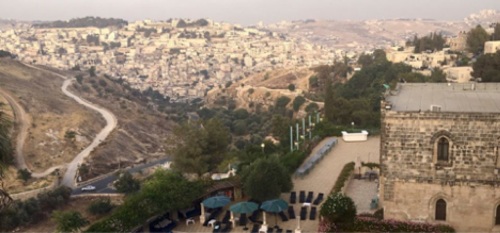
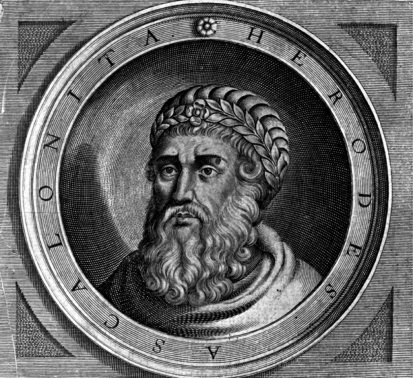
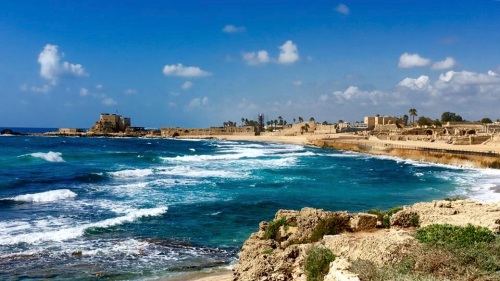 Barry Gilbert
Barry Gilbert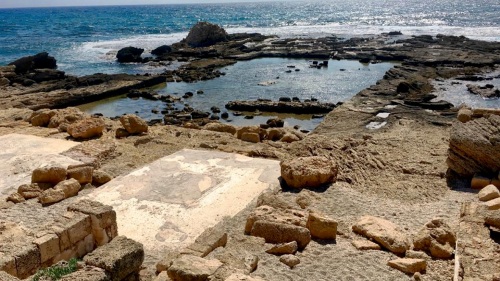 Barry Gilbert
Barry Gilbert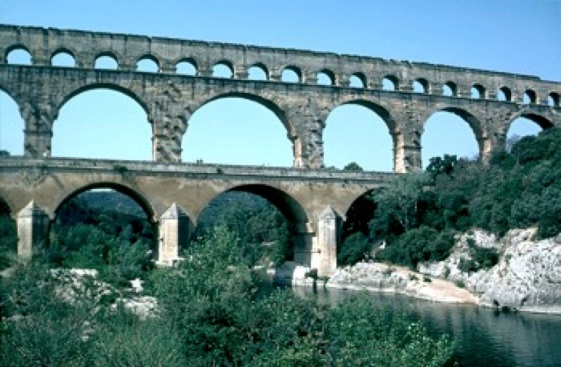
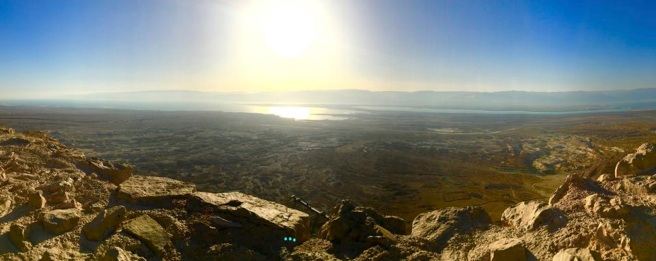 Barry Gilbert
Barry Gilbert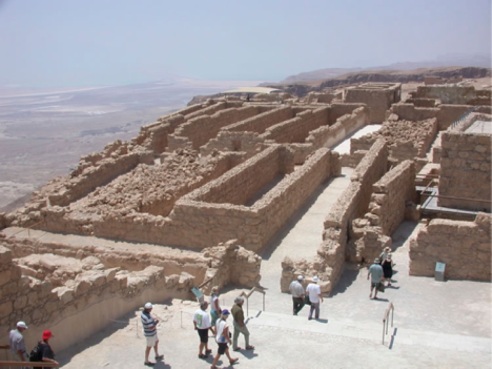 Internet stock photo
Internet stock photo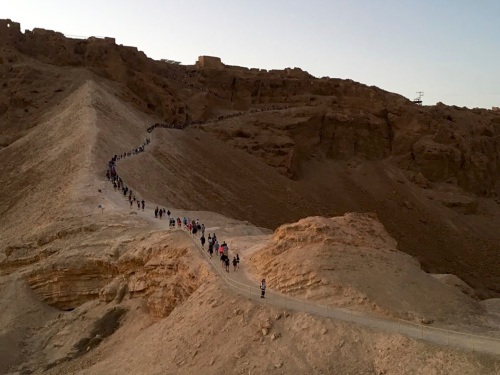 Barry Gilbert
Barry Gilbert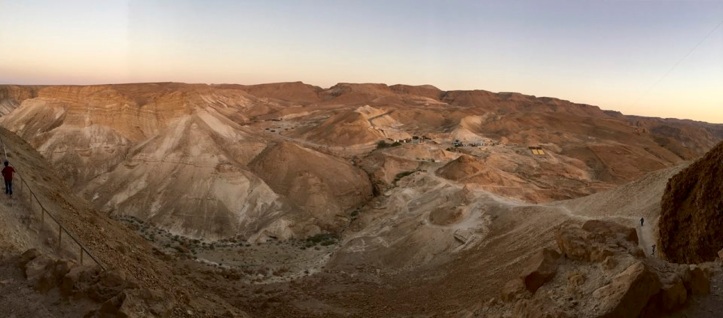 Barry Gilbert
Barry Gilbert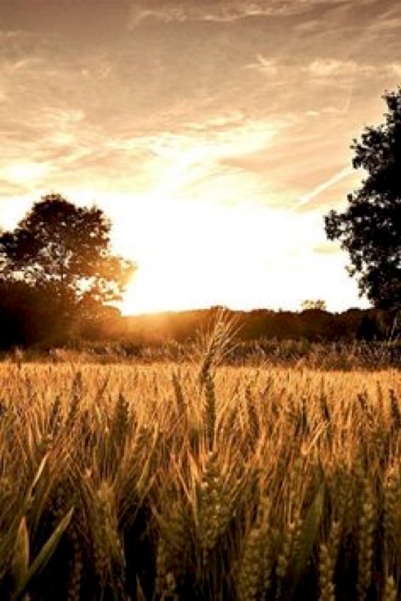
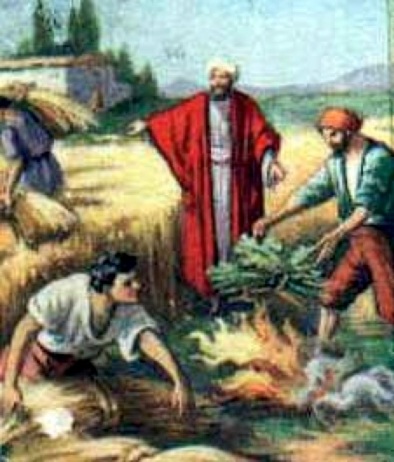
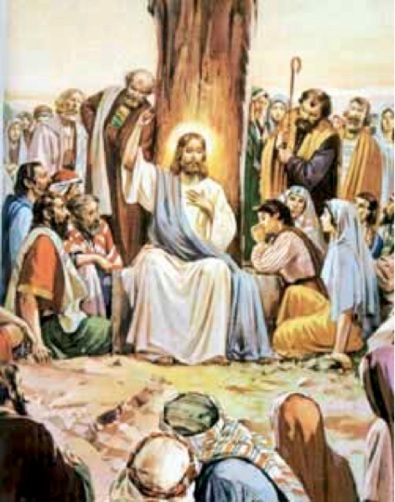
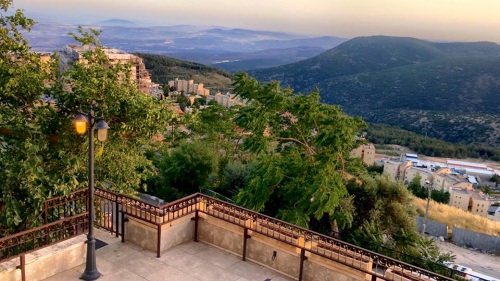 Barry Gilbert
Barry Gilbert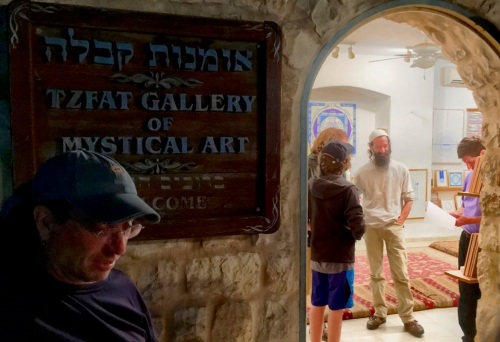 Barry Gilbert
Barry Gilbert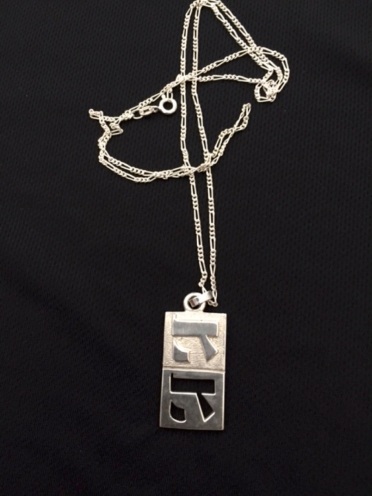 Virginia Gilbert
Virginia Gilbert